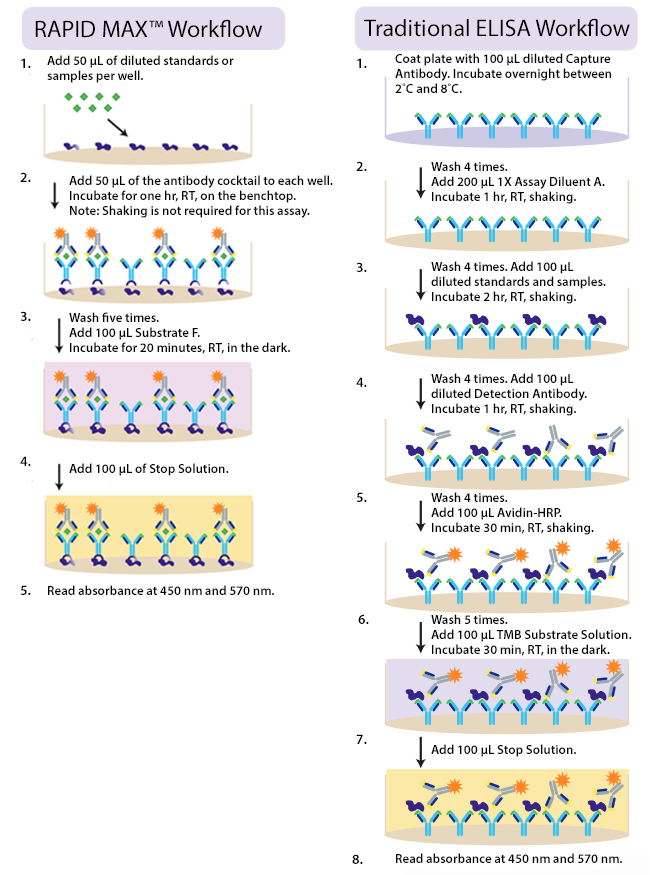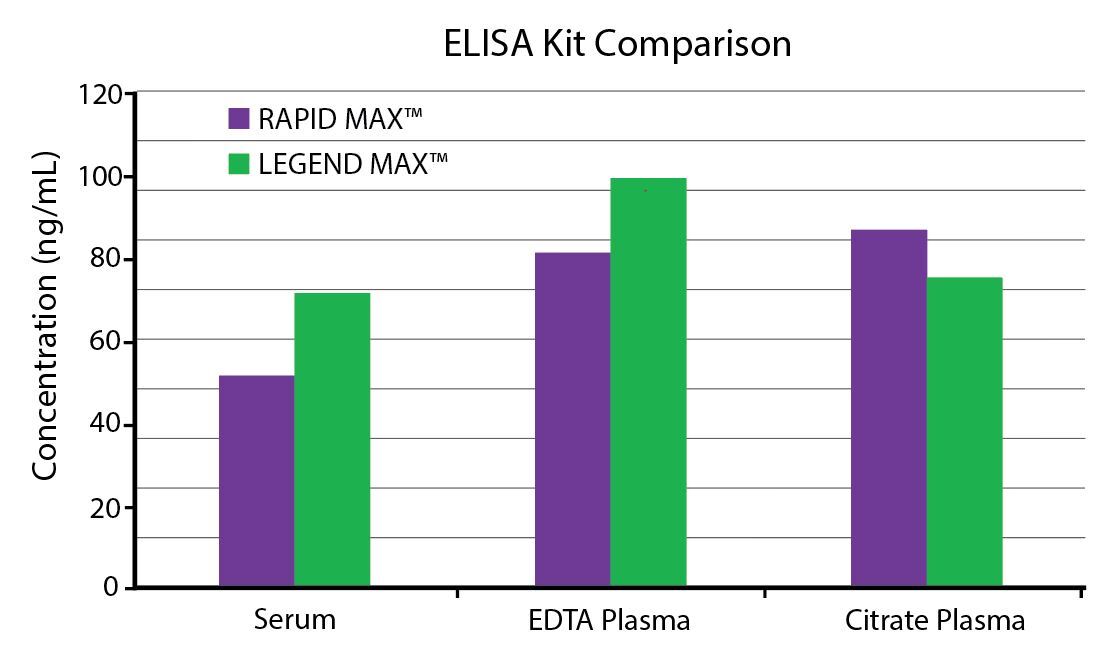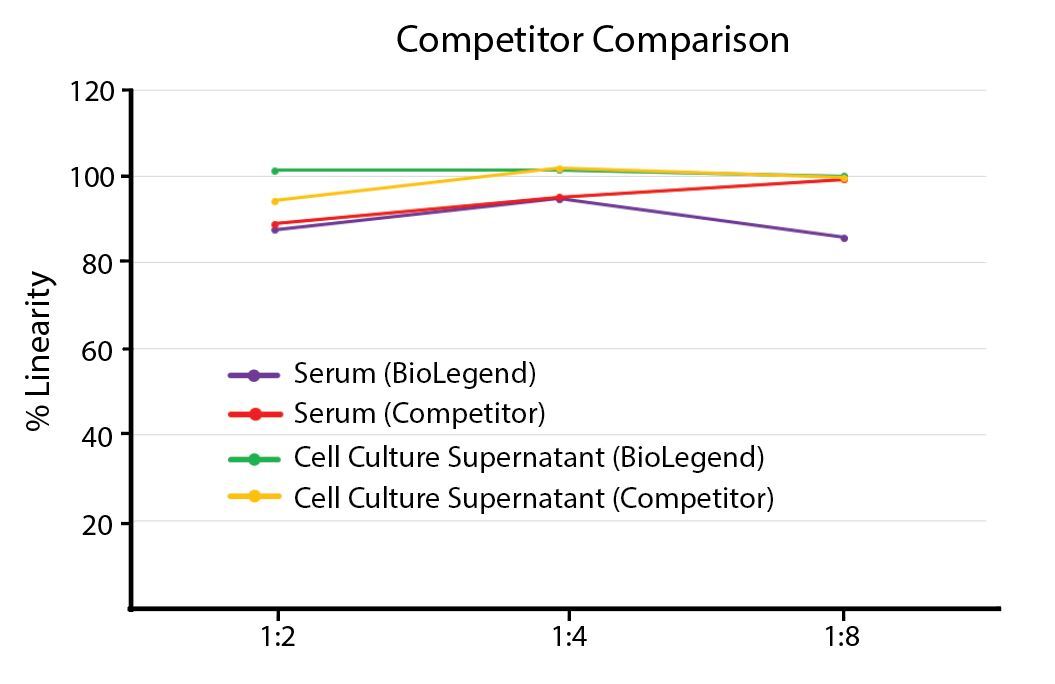FreeStyle Libre 2 have been upgraded to FreeStyle libre 2 Plus. There is a price increase which directly relates to the additional day of wear time which is 15 days.
 Menu
Menu
15 Mar 2021

Traditional sandwich ELISA assays are performed by coating a multi-well plate with capture antibodies to immobilize soluble proteins. Bound proteins are then recognized by a second antibody known as the detection antibody, which is often labeled with an enzyme. While this process has been used reliably to quantify biomarkers and cytokines, it can also be time-consuming as steps like coating the plate require an overnight incubation.
To help you get your data faster, we’ve released RAPID MAX™ ELISA kits that cut assay time down to less than 90 minutes from start to finish. The one-step, one-wash protocol combines capture and detection antibody incubation so you can streamline your time in the lab.
How does it work?
Each RAPID MAX™ kit comes with a 96-well strip plate that has been pre-coated to immobilize the biotinylated capture antibody, removing the need for long incubations to coat the plate. Standards and samples can be added directly to the well. Unlike a typical sandwich ELISA, the RAPID MAX™ workflow only contains a single one-hour antibody incubation. In this step, the biotinylated capture and HRP-conjugated detection antibody bind to the protein of interest in solution. Next, the plates are washed and incubated with substrate. Finally, stop solution is added, and the plate can be read on an appropriate device.
Traditional ELISA workflows can take nearly 24 hours, including overnight plate coating. Even with pre-coated plates, the process can still take upwards of 4 hours. By simplifying the workflow, RAPID MAX™ kits reduce the total assay time to 90 minutes or less.

How are RAPID MAX™ kits validated?
Each kit is fully validated using relevant biological samples, including EDTA plasma, citrate plasma, heparin plasma, serum, and cell culture supernatant. We also test the following parameters and include the results in the user manuals (available on the product webpage).
Below, we show validation data for our RAPID MAX™ Human IL-6 Kit. Spike recovery experiments (shown on the left) are performed by ‘spiking’ recombinant target proteins into a variety of sample types. These experiments help determine whether matrix effects are interfering with the reading. Linearity of dilution experiments help to confirm that results are dose-responsive and that the assay will work over a range of concentrations. For these experiments, human samples were diluted to the recommended dilution factor, spiked with a high concentration of IL-6, and then further diluted to produce samples within the dynamic range of the assay.

How does RAPID MAX™ compare to other ELISA formats?
RAPID MAX™ kits get data faster without compromising on quality and offer comparable results to our ELISA kits and sets. During development, our RAPID MAX™ kits are run in a side-by-side experiment with other kit formats to ensure that the results are consistent.

Figure 3: Human IL-6 was quantified in serum, EDTA plasma, and citrate plasma samples using either our LEGEND MAX™ or RAPID MAX™ kit formats to confirm that both kits provide similar results.
We also perform testing against competitor kits to ensure that our kits provide comparable or better sensitivity and dynamic range.

Maximize the time you have in the lab and streamline your experiments with our new RAPID MAX™ ELISA kits. From start to finish, these kits reduce total assay time to less than 90 minutes from start to finish. We’re continuing to release RAPID MAX™ kits for new targets. To be notified of our newest product releases, sign up for our email updates.
If you enjoyed reading our articles, why not sign up to our blog mailing list? You'll get new articles straight to your inbox as they're released!